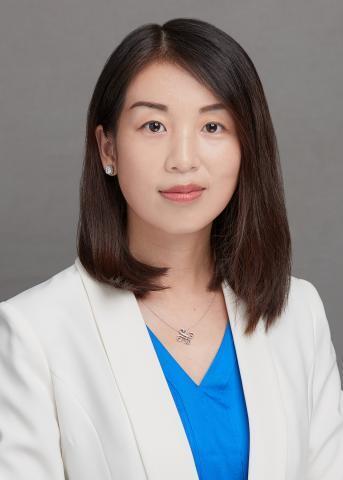Meet Faculty Member Chi Li, PhD

As a Chinese international student, Dr. Chi Li’s pathway to a career as a counselor educator in the United States is a tale of serendipity, ingenuity, and determination.
At a relatively young age, Dr. Li earned a bachelor’s degree in organizational leadership from Fort Hays State University in Kansas, which had a partnership with her local university in China. The partnership allowed her to attend as an international student. Dr. Li said in her sophomore year she dreamt of becoming a university faculty member because the thought of working with young college students and helping them realize their individual potential was very exciting. Upon graduation, she enrolled at The Ohio State University (OSU) to pursue a master’s degree in educational administration.
At OSU, Dr. Li quickly experienced the culture shock and loneliness of being an international student. While other students of Dr. Li's age lived on campus and were enjoying the freshman experience, she lived off campus in an apartment with other Chinese students. “It was very difficult to become acculturated because most of the time I was just hanging out with other Chinese students,” she said. “Plus, I consider myself to be an introvert, so this made it even more difficult to get to know other people.” While the greatest opportunities to socialize were with her classmates, she discovered that most of them were older than she, working full time, and well established in their career. “My classmates were seasoned teachers and school principals,” Dr. Li said.
Dr. Li came to the disappointing conclusion that her master’s in educational administration was not going to offer what she expected. “There was a miscommunication when I applied for this program,” she said. “I thought I would be able to learn administration, but halfway through, I realized that administration is not something you just learn in the classroom, you learn it by doing. Due to my international status, though, I was not going to be able to work in a school to apply this knowledge.”
Despite the feeling of isolation and the glum reality that she would not be able to utilize her master’s degree, Dr. Li focused on completing her degree early and teaching Mandarin to young children in a church school. It was here she became interested in counseling.
When Dr. Li noticed a couple of her students were struggling with their lessons, their parents disclosed that it was mental health issues that were affecting their learning. To better help them, Dr. Li began researching their mental health disorders. “I became very passionate about mental health and knew I wanted to pursue a master’s degree in counseling.”
Knowing it would be a financial burden for her family to pay for another master’s degree, she developed an ambitious five-year plan, which included completing a master’s degree in counseling at Arizona State University (ASU) in two years and a PhD in counseling in three years.
With utter determination, Dr. Li enrolled at ASU and earned her master’s in counseling in two years. Due to her international student status, she knew she would not be able to work in the field to earn the hours she needed for licensure. Instead, she focused her academic efforts on developing her research skills, as this would be an important element of her application to PhD programs.
“I found conducting research at that stage to be very hard,” said Dr. Li. “I focused my research on my own experience, the international counseling student experience. I had a mentor who was very supportive and who told me I was the only master’s student she had known who completed a thesis at that level, a rarity for the master’s level counseling program.”
The thesis gave Dr. Li a solid foundation for her doctoral program at Old Dominion University. Equipped with the knowledge and experience she gained in her research classes at ASU, her research progressed quickly and began to shift from her own student experience to a more clinical orientation of counseling supervision.
To this day, Dr. Li prides herself on her knowledge of the research process and her ability to demystify it for her students. After becoming a faculty member, she received praise from a student who had just completed her comprehensive exam. “The student called to tell me how many compliments she received from the faculty on the research section of the exam. The student said that before coming to the program, she was afraid of research, it gave her a headache. But now she does not find it scary at all. This accomplishment warms my heart. I keep reminding myself of this student and how I’ll be able to help more students in learning the research process.”
Now at PAU, Dr. Li is helping launch the new PhD program in Counselor Education and Supervision and is excited about the impact she can have on student learning. In addition to her research focus on supervision, Dr. Li’s clinical experience is Integrated Behavioral Health. Prior to her arrival at PAU, Dr. Li was involved in a grant project that developed a handbook for hospital trauma units and emergency care to help them integrate mental health care into their units.
When Dr. Li is not in the classroom, conducting research, or doing clinical work she enjoys illustration. “I learned illustration during the pandemic,” said Dr. Li. “It is something I was always interested in when I was young.” Dr. Li also enjoys watching documentary films. “When I’m not busy, I don’t want to read anymore, but I still want to keep learning new things. Documentaries are a way to learn a lot about many things. Right now, I’m watching one about a Chinese artist who is discussing the artwork of artists from around the world. His interpretation helps me appreciate the many different forms of artwork.”


